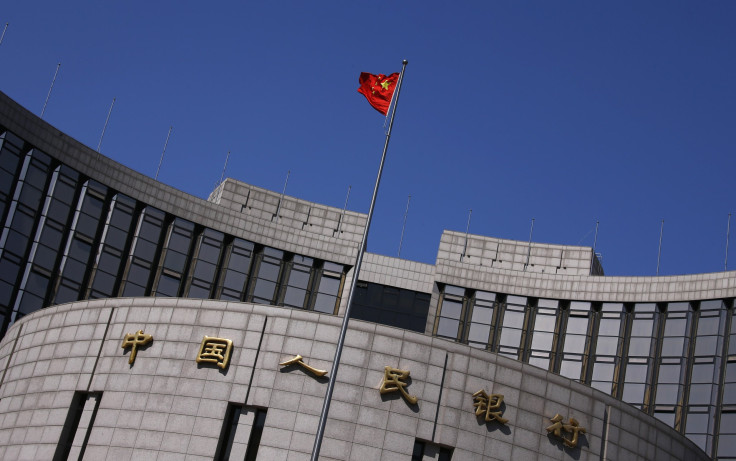Asian Stocks Mixed After China Cuts Reserve Requirement To Boost Economy

UPDATE: 8:48 p.m. EST --- Shares in Shenzhen rose 0.3 percent, reversing earlier losses, and shares in Shanghai were little changed after the People's Bank of China took an unexpected step to boost lending and the economy on Monday. Japan's Nikkei 225 and South Korea's KOSPI stayed down. Singapore's STI dipped, giving up earlier gains, and Australia's ASX 200 added to its advance.
Original story:
Asian stocks were mixed on Tuesday morning after China unexpectedly cut bank reserve requirements, allowing more money to flow into the financial system.
Japan's Nikkei 225 fell 0.4 percent and South Korea's KOSPI dipped 0.2 percent. Singapore's STI rose 0.7 percent and Australia's ASX 200 was up 0.1 percent. Shares in Shenzhen dropped 4.8 percent.
In the U.S., the Dow Jones Industrial Average, Standard & Poor's 500 and Nasdaq Composite all fell 0.7 percent to 0.8 percent. They were down for the fourth straight month in February.
The People's Bank of China cut the reserve requirement, or the percentage of deposits banks have to keep rather than lend, by half a percentage point to boost the country's economy. That reduces the requirement to 17 percent for most large lenders and was the fifth cut in a year. It will allow banks to boost lending by about 685 billion yuan ($105 billion), Bloomberg reported.
“It promises to be a huge day for markets,” said Chris Weston, chief market strategist at IG, Bloomberg reported.
"China is the lead for Asia," CNBC reported Weston as saying.
The move, which should make it easier to borrow, also raises concerns about financial bubbles and allowing inefficient, unprofitable businesses -- so-called zombie companies -- to keep operating, hurting more efficient players in their industries. It came just after finance ministers of the G-20, the world's largest economies, said they were for boosting the global economy without relying too much on central banks.
"The central bank may then need more window guidance to commercial banks to ensure this additional liquidity would not be directed to save zombie corporates in overcapacity industries," said Iris Pang, a senior economist for Greater China at Natixis, CNBC reported.
Also helping stocks: Oil rose on Monday, which Reuters attributed at least in part to speculation that China's move would boost that country's demand for fuel. Also boosting oil: the latest reports on falling production in the U.S. and OPEC, and a Saudi Arabian vow to limit price swings. Rising oil prices benefit energy companies and the many industries that supply them around the world.
© Copyright IBTimes 2024. All rights reserved.




















